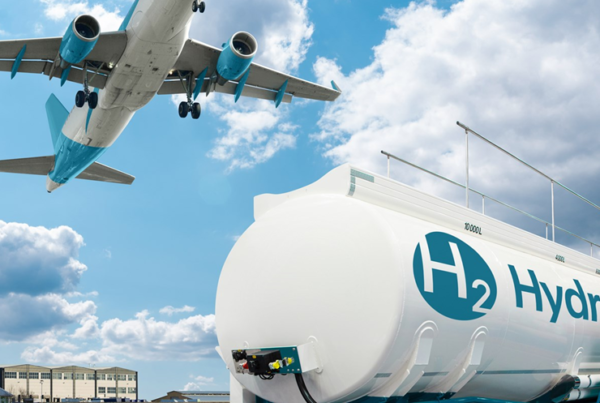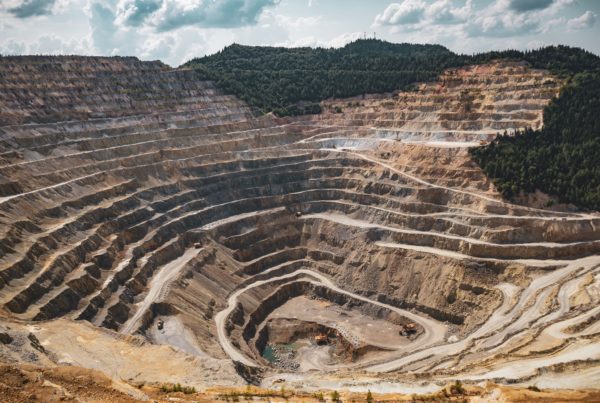
Maastricht – A consortium of nine partners is joining forces to boost the development of clean hydrogen innovation, demonstration and knowledge sharing in the Euregion Meuse-Rhine, as a first step towards the large-scale roll-out of a clean hydrogen economy. The working area of the EMR H2 Booster consortium consists of Dutch and Flemish Limburg, the Aachen region and Liège. Through cross-border cooperation at this level, the project partners aim to facilitate the accelerated emergence of a hydrogen economy in the area. The consortium held its kick-off event today at the Maastricht provincial house.
The consortium comprises regional development agencies, hydrogen cluster organisations and a knowledge institute, thereby combining ample experience in the hydrogen sector with knowledge of local Small and Medium-Sized Enterprises (SMEs).
Within the EMR H2 Booster, the partners will work on four main work streams. Firstly, they will perform a mapping exercise of plans, roadmaps, visions, views, R&D activities, industrial players and competences within the region. These will then be integrated into an online platform (the Digital Innovation Platform). Based on the gathered insights, focused matchmaking sessions will be organised for SMEs in the region (work stream two). In this second work stream, several ’cases’ will be defined and elaborated further. The ‘cases’ comprise consortia of SMEs and other partners that have the ambition to work together on real hydrogen implementations. Throughout the project, they will receive the support they need to take the next steps towards realisation. Four large events will be organised in the third work stream, one in each region. These will consist of inspiration and demonstrations sessions and workshops on specific themes. On the one hand, these events will enhance the knowledge of the SMEs involved in the cases. On the other hand, they will also function as an inspiration for SMEs still at an earlier stage of involvement in the hydrogen sector. A separate fourth work stream will prepare a long term roadmap for the region and work on the definition of a long-term governance structure and business model of the EMR H2 Booster beyond the project’s timespan.
This project aims to decrease greenhouse gas emissions by a transition to hydrogen, combined with an increase in technological development, economic activity and employment. A diverse group of SME’s will be called upon and included in the ecosystem of the EMR H2 Booster.
The EMR H2 Booster project has received funding from the Interreg Euregio Meuse-Rhine program. This program receives support from the European Union’s ERDF. In addition, several of the partners receive co-financing from local governments, including the Dutch province of Limburg, the Dutch province of Noord-Brabant, the Dutch ministry of Economic and Climate Policy, the Walloon Government, and the German state government of North Rhine-Westphalia. The project duration is 18 months.
The partners in the project are Stadt Aachen, LIOF, POM Limburg, Cluster TWEED, SPI, IHK Aachen, Universiteit Hasselt, Waterstof Coalitie Limburg and WaterstofNet who coordinates the project. As an associated partner Regio Parkstad supports the project.
POM Limburg:
Tom Vandeput, Deputy for Economy and chairman of POM Limburg: “With the development of a hydrogen ecosystem, Limburg wants to strengthen its ambition to play a pioneering role in the field of sustainable and low-carbon energy. Fossil fuels must be phased out as soon as possible and replaced by the new energy carriers of the future, such as green electricity, hydrogen and biogas. POM Limburg therefore sees hydrogen as an interesting transition technology, which can accelerate the innovation and sustainability of our companies. Companies and organisations that look at hydrogen today will be ready more quickly for new technologies, where energy storage in particular will play an important role. POM is therefore strongly encouraging bodies and companies to realise their hydrogen ambitions in Limburg and in doing so fits seamlessly into the European economic agenda.”
SPI:
“Thanks to this project and the gathering of various expertises inside Euregio, our ambition is that our territory and the companies seize the development opportunities in the innovative and strategic sector of hydrogen. The international context and climate change remind us that the energetic challenge is one of the most important for our generation; hydrogen is, without any doubt, part of the solution. We are very glad to be part of the boost given by Wallonia and the European Union to amplify this technology,” states SPI’s General Director Cédric Swennen.
IHK Aachen:
“Hydrogen offers two big chances for enterprises in our region: they can produce their goods carbon free and they can participate in the hydrogen value chain to create added value and develop new business models. We are looking forward to advance this transition together with our partners in the Euregion Meuse-Rhine,” says Michael F. Bayer, CEO IHK Aachen.
UHasselt/EnergyVille:
Prof. dr. Bart Vermang, UHasselt and EnergyVille: “Green hydrogen and other synthetic fuels are key to the next phase of our energy transition to a low carbon society, where taking the lead in research and development activities is critical to generate economic impact. That is what we do in our Green Hydrogen Lab.”
Cluster TWEED:
Cédric Brüll, Director of the Walloon Cluster TWEED: “TWEED, and its dedicated H2Hub Wallonia, is helping the regional H2 sector since its 2018 H2 Roadmap, preparing the field, encouraging players to work together and build a strong value chain. We are very pleased and motivated to work together with our regional neighbours to go one step further and build something stronger! We are happy to be part of this impressive team.”
Stadt Aachen:
Innovation Manager Sophia Koch adds: “The Department of Economics, Science, Digitalization and Europe of the City of Aachen is looking forward to take the lead of a work package in the EMR H2 Booster. The project is a great opportunity to expand the network in the field of hydrogen and to strengthen cross-border cooperation. We are full of confidence that this euregional networking will implicate an increased added value in the region. The city of Aachen is contributing excellent research to the project in addition to strong competencies in the areas of innovation and sustainability.”
WaterstofNet:
Adwin Martens, managing director WaterstofNet: “Europe is speeding up ambitions on hydrogen in different applications as a necessary way of decarbonization our society. Therefore it is crucial that a three-country point as EMR – connecting Belgium, The Netherlands and Germany – will develop strong plans for contributing to this European hydrogen ambition: as implementation area as well as supplier of productions and services.”
Read the most up to date Fuel Cell and Hydrogen Industry news at FuelCellsWorks




